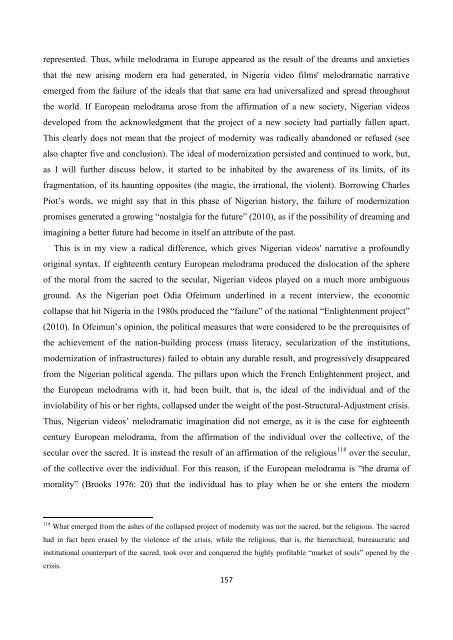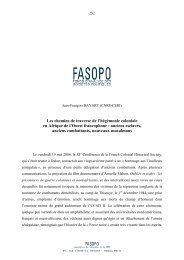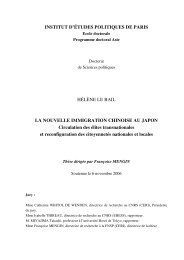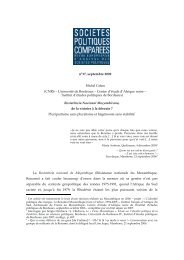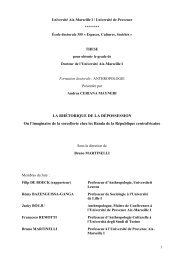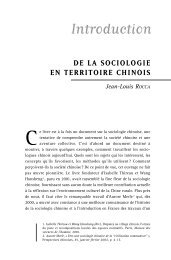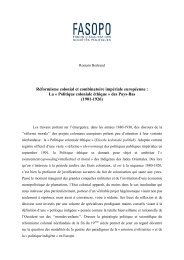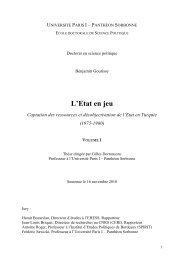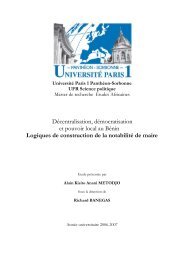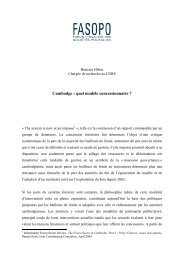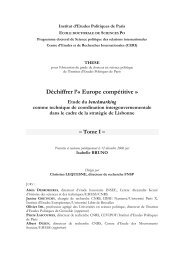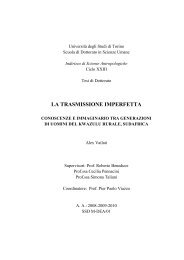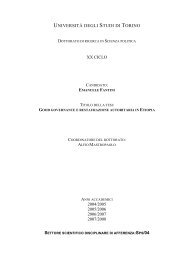Create successful ePaper yourself
Turn your PDF publications into a flip-book with our unique Google optimized e-Paper software.
epresented. Thus, while melodrama in Europe appeared as the result of the dreams and anxietiesthat the new arising modern era had generated, in Nigeria video films' melodramatic narrativeemerged from the failure of the ideals that that same era had universalized and spread throughoutthe world. If European melodrama arose from the affirmation of a new society, Nigerian videosdeveloped from the acknowledgment that the project of a new society had partially fallen apart.This clearly does not mean that the project of modernity was radically abandoned or refused (seealso chapter five and conclusion). The ideal of modernization persisted and continued to work, but,as I will further discuss below, it started to be inhabited by the awareness of its limits, of itsfragmentation, of its haunting opposites (the magic, the irrational, the violent). Borrowing CharlesPiot’s words, we might say that in this phase of Nigerian history, the failure of modernizationpromises generated a growing “nostalgia for the future” (2010), as if the possibility of dreaming andimagining a better future had become in itself an attribute of the past.This is in my view a radical difference, which gives Nigerian videos' narrative a profoundlyoriginal syntax. If eighteenth century European melodrama produced the dislocation of the sphereof the moral from the sacred to the secular, Nigerian videos played on a much more ambiguousground. As the Nigerian poet Odia Ofeimum underlined in a recent interview, the economiccollapse that hit Nigeria in the 1980s produced the “failure” of the national “Enlightenment project”(2010). In Ofeimun’s opinion, the political measures that were considered to be the prerequisites ofthe achievement of the nation-building process (mass literacy, secularization of the institutions,modernization of infrastructures) failed to obtain any durable result, and progressively disappearedfrom the Nigerian political agenda. The pillars upon which the French Enlightenment project, andthe European melodrama with it, had been built, that is, the ideal of the individual and of theinviolability of his or her rights, collapsed under the weight of the post-Structural-Adjustment crisis.Thus, Nigerian videos’ melodramatic imagination did not emerge, as it is the case for eighteenthcentury European melodrama, from the affirmation of the individual over the collective, of thesecular over the sacred. It is instead the result of an affirmation of the religious 118 over the secular,of the collective over the individual. For this reason, if the European melodrama is “the drama ofmorality” (Brooks 1976: 20) that the individual has to play when he or she enters the modern118 What emerged from the ashes of the collapsed project of modernity was not the sacred, but the religious. The sacredhad in fact been erased by the violence of the crisis, while the religious, that is, the hierarchical, bureaucratic andinstitutional counterpart of the sacred, took over and conquered the highly profitable “market of souls” opened by thecrisis.157


